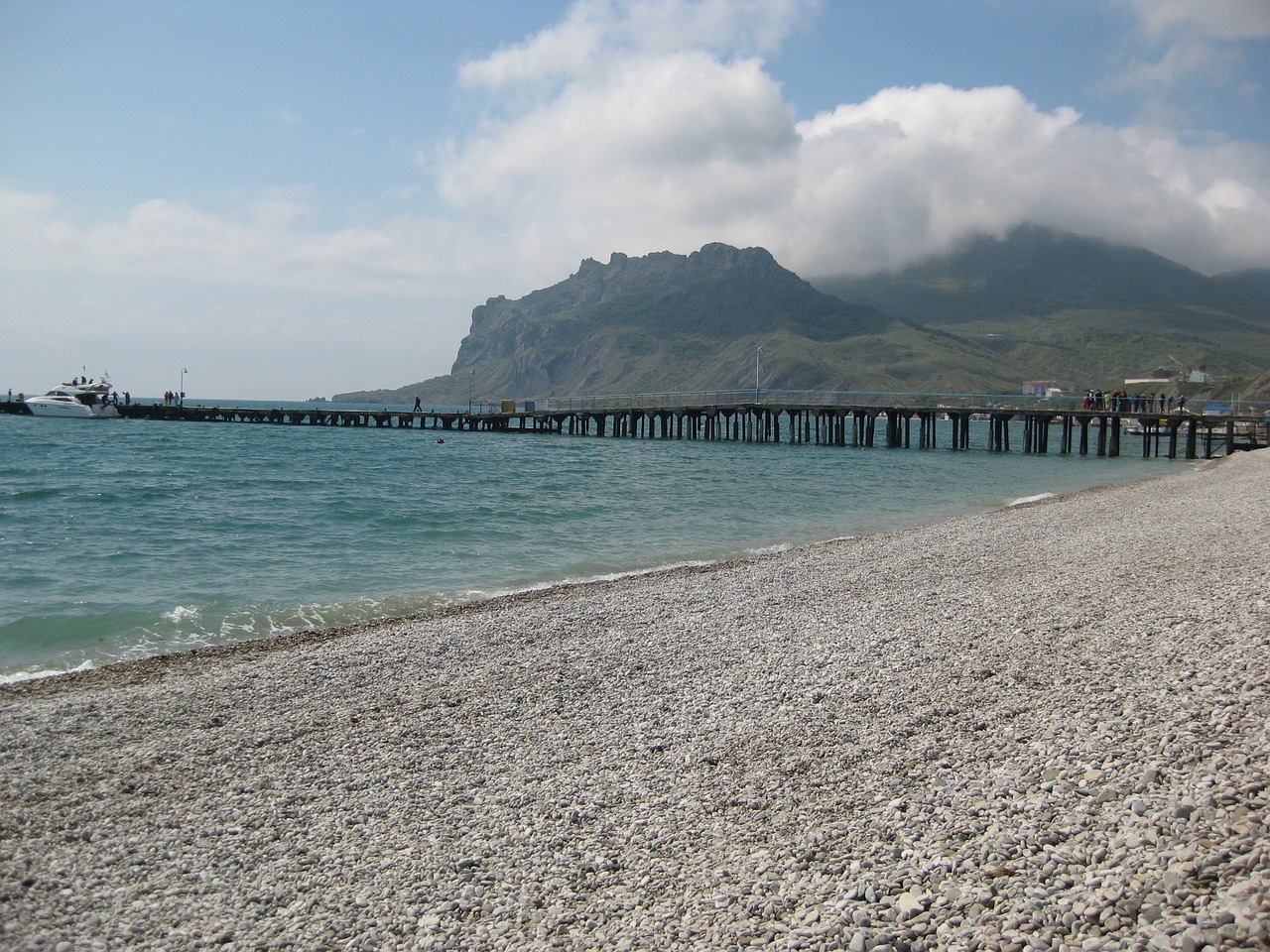
The Crimean Peninsula, located on the northern coast of the Black Sea, has a rich and complex history that has shaped its significance in both global politics and current events. From ancient Greek and Roman settlements to Mongol invasions and Soviet rule, Crimea has been at the center of conflicts and power struggles throughout history. In recent years, the annexation of Crimea by Russia in 2014 has further heightened tensions in the region and sparked international controversy. This article will explore the history of Crimea, the annexation by Russia, the struggles of the Crimean Tatars, the impact of the conflict on Crimean society, the challenges and opportunities facing the region’s economy, the impact on tourism, the international response to the annexation, the future prospects for Crimea, and the humanitarian situation in the region.
Summary
- Crimea has a rich history dating back to ancient times, with various empires and cultures leaving their mark on the peninsula.
- Russia’s annexation of Crimea in 2014 was a controversial move that sparked international condemnation and sanctions.
- The Crimean Tatars, a minority group native to the region, have faced discrimination and persecution throughout history and continue to struggle for their rights and recognition.
- The conflict in Ukraine has had a significant impact on Crimean society, with many facing economic hardship and political repression.
- The economy of Crimea faces challenges due to sanctions and isolation, but also presents opportunities for development in tourism and agriculture.
The History of Crimea: From Ancient Times to Modern Day
The history of Crimea dates back to ancient times when it was inhabited by Greek colonies such as Chersonesus and Pantikapaion. These settlements played a significant role in trade and cultural exchange between Greece and other civilizations in the region. In later centuries, Crimea was invaded by various nomadic tribes, including the Mongols and Tatars. The region became part of the Russian Empire in 1783 and remained under Russian control until 1954 when it was transferred to the Ukrainian Soviet Socialist Republic.
Throughout its history, Crimea has been strategically important due to its location on the Black Sea. It has been a coveted territory for empires seeking access to warm-water ports and control over trade routes. The Crimean War in the mid-19th century was a major conflict that involved Russia, Britain, France, and the Ottoman Empire. The war resulted in significant loss of life and marked a turning point in European power dynamics.
The Annexation of Crimea: A Controversial Move by Russia
The annexation of Crimea by Russia in 2014 was a highly controversial move that sparked international condemnation and heightened tensions between Russia and Ukraine. The events leading up to the annexation can be traced back to the Euromaidan protests in Ukraine, which began in late 2013. These protests were sparked by the Ukrainian government’s decision to abandon plans for closer integration with the European Union in favour of closer ties with Russia.
Amidst the political turmoil in Ukraine, Russia seized the opportunity to assert its influence in Crimea. Russian troops, without insignia, occupied key locations in Crimea, and a hastily organized referendum was held in which the majority of Crimean residents voted in favor of joining Russia. The international community widely condemned the annexation as a violation of international law and an infringement on Ukraine’s sovereignty.
The Crimean Tatars: A Minority Group’s Struggle for Rights and Recognition
The Crimean Tatars are an indigenous Turkic ethnic group that has a long history in Crimea. They were forcibly deported from Crimea by Soviet authorities in 1944 under accusations of collaboration with Nazi Germany. This mass deportation resulted in the deaths of thousands of Crimean Tatars and their subsequent exile to Central Asia.
After the collapse of the Soviet Union, many Crimean Tatars returned to their homeland and have since been fighting for recognition and autonomy. They have faced discrimination and marginalization under both Soviet and Russian rule. The annexation of Crimea by Russia has further exacerbated their struggle for rights and recognition, as they are now living under Russian control.
The Impact of the Conflict in Ukraine on Crimean Society
The conflict in Ukraine, including the annexation of Crimea, has had a profound impact on Crimean society. Many Crimean residents have been displaced or forced to flee their homes due to the conflict. This has resulted in a significant humanitarian crisis, with thousands of people lacking access to basic needs such as food, water, and shelter.
The conflict has also had a detrimental effect on the economy of Crimea. The region has faced economic challenges since the annexation, including a decline in tourism and trade. The political instability and uncertainty surrounding Crimea’s status have deterred investors and hindered economic growth.
The Economy of Crimea: Challenges and Opportunities
The economy of Crimea is heavily reliant on tourism and agriculture. The region’s natural beauty, including its picturesque coastline and historic landmarks, has made it a popular tourist destination. However, the annexation of Crimea and the ongoing conflict in Ukraine have had a significant impact on the tourism industry. Many tourists have been deterred from visiting Crimea due to safety concerns and political instability.
The agricultural sector in Crimea has also faced challenges since the annexation. The region was known for its fertile soil and agricultural production, particularly in the cultivation of grapes and wine production. However, the annexation has disrupted trade routes and hindered access to markets, resulting in a decline in agricultural output.
Despite these challenges, there are potential opportunities for economic growth in Crimea. The region has significant natural resources, including oil and gas reserves, which could be exploited for economic gain. Additionally, there is potential for investment in infrastructure development and renewable energy projects.
The Crimean Peninsula: A Tourist Destination with a Troubled Past
Crimea is known for its natural beauty and historical landmarks, making it a popular tourist destination. The region boasts stunning beaches along the Black Sea coast, as well as picturesque mountains and nature reserves. Crimea is also home to numerous historical sites, including ancient Greek ruins, medieval fortresses, and palaces built during the Russian Empire.
However, the conflict in Ukraine has had a detrimental impact on tourism in Crimea. Many tourists have been deterred from visiting the region due to safety concerns and political instability. The annexation of Crimea by Russia has also resulted in travel restrictions and visa requirements, making it more difficult for tourists to visit the region.
The International Response to the Annexation of Crimea
The annexation of Crimea by Russia was met with widespread condemnation from the international community. The United Nations, European Union, and other international organizations issued statements denouncing the annexation as a violation of international law and an infringement on Ukraine’s sovereignty.
In response to the annexation, the international community imposed sanctions on Russia, targeting key individuals and entities involved in the annexation. These sanctions have had a significant impact on the Russian economy, particularly in sectors such as finance and energy. However, there is ongoing debate about the effectiveness of these measures in deterring Russia’s actions in Crimea.
The Crimean Crisis: A Turning Point in Russia-Ukraine Relations
The annexation of Crimea has had a profound impact on Russia-Ukraine relations. The long-standing tensions between the two countries have been further exacerbated by the conflict, with both sides accusing each other of aggression and violating international law.
The annexation of Crimea has also raised concerns about the potential for future conflict in the region. The ongoing tensions between Russia and Ukraine, as well as the unresolved status of Crimea, continue to pose a threat to regional stability. The international community has a crucial role to play in preventing further escalation and finding a peaceful resolution to the crisis.
The Humanitarian Situation in Crimea: Access to Education, Healthcare, and Basic Needs
The conflict in Ukraine has had a devastating impact on the humanitarian situation in Crimea. Many Crimean residents have been displaced or forced to flee their homes, resulting in a significant number of internally displaced persons (IDPs). These IDPs face numerous challenges in accessing basic needs such as food, water, shelter, and healthcare.
The conflict has also had a detrimental effect on education in Crimea. Many schools have been damaged or destroyed, and access to education has been disrupted for thousands of children. The ongoing political instability and uncertainty surrounding Crimea’s status have further hindered efforts to provide quality education to all residents.
The Future of Crimea: Prospects for Reunification with Ukraine or Independence from Russia
The future of Crimea remains uncertain, with various possibilities for its status in the coming years. Some argue that Crimea should be reunited with Ukraine, while others advocate for its independence from Russia. Reunification with Ukraine would require a peaceful resolution to the conflict and a commitment to protecting the rights and autonomy of all residents, including the Crimean Tatars.
Independence from Russia is another potential outcome for Crimea. However, this would require international recognition and support, as well as a commitment to democratic governance and respect for human rights.
The Crimean Peninsula has a rich and complex history that has shaped its significance in global politics and current events. The annexation of Crimea by Russia in 2014 has heightened tensions in the region and sparked international controversy. The conflict has had a profound impact on Crimean society, including displacement, economic challenges, and political instability. The future of Crimea remains uncertain, with various possibilities for its status in the coming years. The international community has a crucial role to play in finding a peaceful resolution to the crisis and ensuring the protection of human rights in the region.
FAQs
What is Crimea?
Crimea is a peninsula located in the Black Sea, south of Ukraine and west of Russia. It has a population of approximately 2.4 million people.
What is the current status of Crimea?
In 2014, Russia annexed Crimea from Ukraine, which has been widely condemned by the international community. Russia claims that the annexation was necessary to protect the Russian-speaking population in Crimea.
What was the reason behind the annexation of Crimea?
The annexation of Crimea was triggered by the ousting of Ukraine’s pro-Russian President Viktor Yanukovych in February 2014, following months of protests against his government. Russia saw this as a threat to its interests in Ukraine and decided to annex Crimea.
What was the reaction of the international community to the annexation of Crimea?
The annexation of Crimea was widely condemned by the international community, with many countries imposing economic sanctions on Russia. The United Nations General Assembly also passed a resolution condemning the annexation and reaffirming Ukraine’s territorial integrity.
What is the current situation in Crimea?
Since the annexation, Crimea has been under Russian control and has become a part of the Russian Federation. However, Ukraine still considers Crimea to be a part of its territory and has been trying to regain control over the peninsula.
What is the impact of the annexation on the people of Crimea?
The annexation has had a significant impact on the people of Crimea, with many facing economic hardship due to the sanctions imposed on Russia. There have also been reports of human rights abuses, including the persecution of Crimean Tatars and other minority groups.



